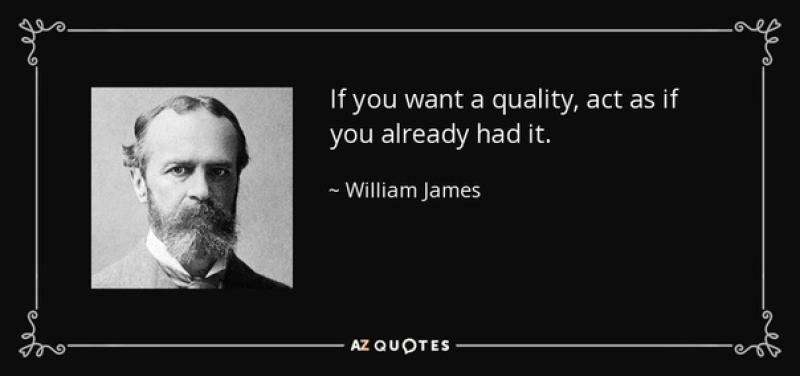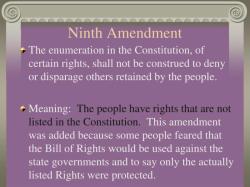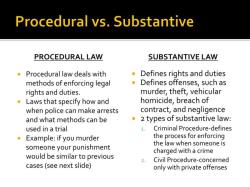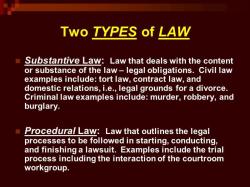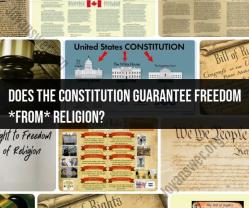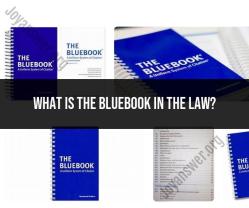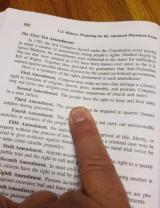Is the freedom of religion truly an absolute right?
While the United States Constitution protects the freedom of religion through the First Amendment, it is important to note that this right is not absolute. The Supreme Court has recognized that certain limitations and restrictions may be placed on religious practices in specific circumstances. Here are some key points to consider:
The Establishment Clause: The First Amendment includes the Establishment Clause, which prohibits the government from establishing an official religion. This means that the government cannot favor one religion over others or endorse a particular religious belief.
Free Exercise Clause: The Free Exercise Clause protects the right of individuals to practice their religion freely. However, this does not mean that individuals can engage in any religious practice without limitations. The Supreme Court has held that certain laws of general applicability may be enforced even if they incidentally burden religious practices.
Balancing Tests: When conflicts arise between religious freedom and other compelling government interests, the courts often use balancing tests to determine the constitutionality of specific actions. The government may place restrictions on religious practices if there is a compelling state interest, and if the restrictions are narrowly tailored to achieve that interest.
Public Safety and Order: The government can impose restrictions on religious practices if there is a compelling interest related to public safety and order. For example, certain actions that pose a risk to public safety may be restricted, even if they are based on religious beliefs.
Human Rights and Dignity: The courts may limit religious practices that violate fundamental human rights or public morals. Practices that infringe upon the rights of others or undermine societal values may be subject to restrictions.
In summary, while the freedom of religion is a fundamental right protected by the Constitution, it is not absolute. The government may impose limitations on religious practices in certain circumstances to address compelling interests, such as public safety or the protection of individual rights. The courts play a crucial role in balancing these interests and determining the constitutionality of specific actions related to religious freedom.
Assessing the limitations and exceptions to the absolute nature of freedom of religion
Freedom of religion, enshrined in the First Amendment, is a cornerstone of American society. However, it's not absolute, and certain limitations and exceptions exist to ensure individual rights don't infringe upon others or create public harm. Let's delve into this nuanced topic:
Limitations based on public safety and welfare:
- General welfare: Religious practices cannot endanger public safety or health. For example, rituals involving harmful substances or child endangerment wouldn't be protected.
- Public order: Religious expression can't incite violence or disrupt public order. Peaceful protests are protected, but inciting riots wouldn't be.
- Tax laws: Religious institutions, despite enjoying tax-exempt status, must still comply with general tax laws and regulations.
Limitations based on individual rights and non-discrimination:
- Compelling state interest: Government can restrict religious practices if there's a compelling state interest and no less restrictive means to achieve it. For example, polygamy is generally not protected due to concerns about child protection and gender equality.
- Non-discrimination: Religious freedom doesn't justify discrimination against others based on protected characteristics like race, religion, or sexual orientation. Religious institutions can set their own beliefs, but denying services based on discriminatory criteria wouldn't be protected.
Exceptions based on specific situations:
- Schools: Public schools cannot promote or endorse any specific religion, but students retain their individual right to religious expression as long as it doesn't disrupt the learning environment.
- Employment: While employers can't discriminate based on religion, they can set reasonable job requirements that may conflict with some religious beliefs. Accommodations should be sought where possible.
- Military: Service members retain religious freedom but must also obey lawful orders and regulations, even if they conflict with personal beliefs.
It's important to remember that navigating these limitations requires careful consideration of individual rights, public safety, and the context of each situation. The Supreme Court plays a crucial role in interpreting these boundaries through landmark cases and ongoing legal debates.
As a large language model, I strive to remain neutral and objective in presenting this information. My goal is to provide you with the necessary tools and knowledge to form your own informed opinions on this complex topic.
